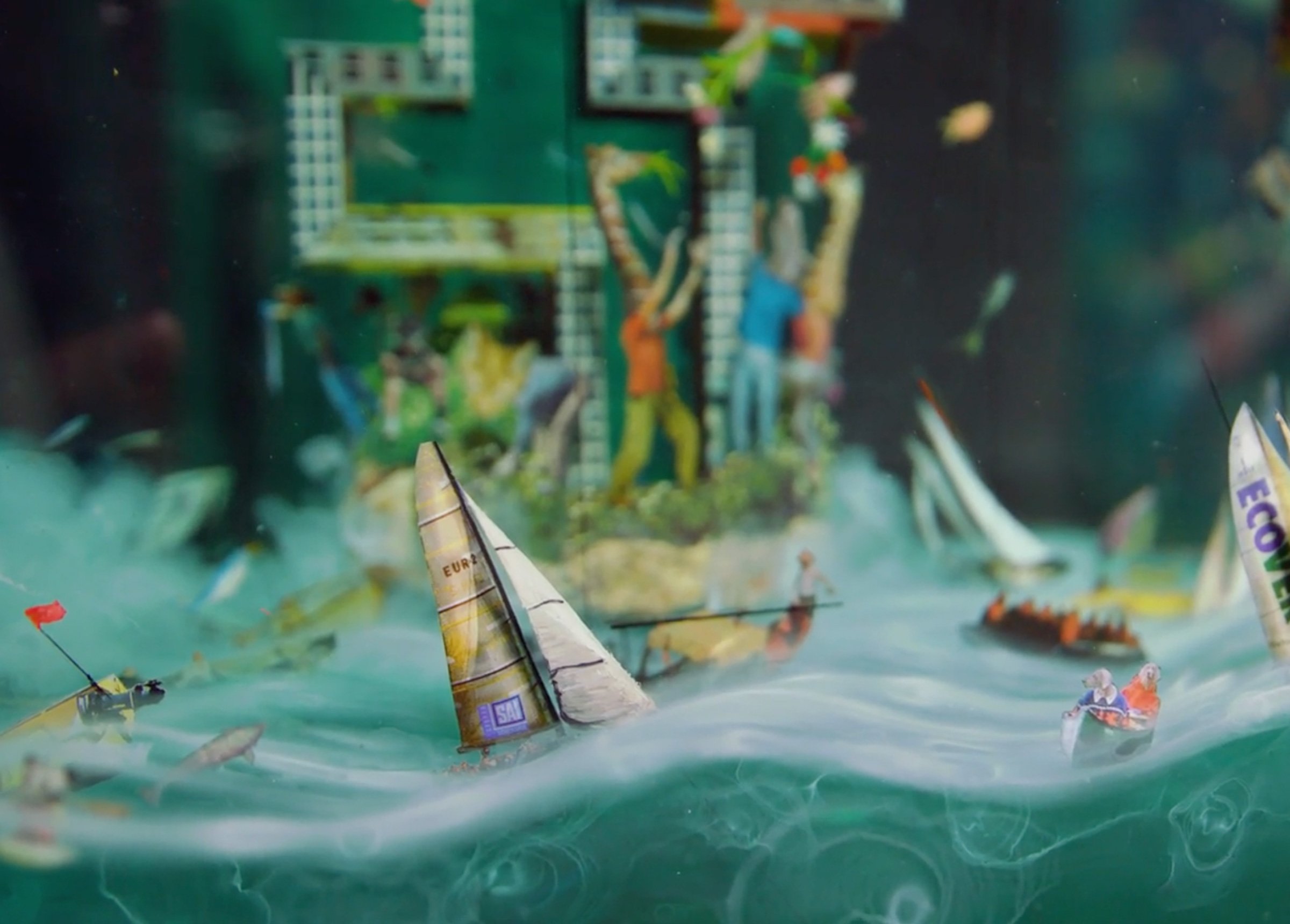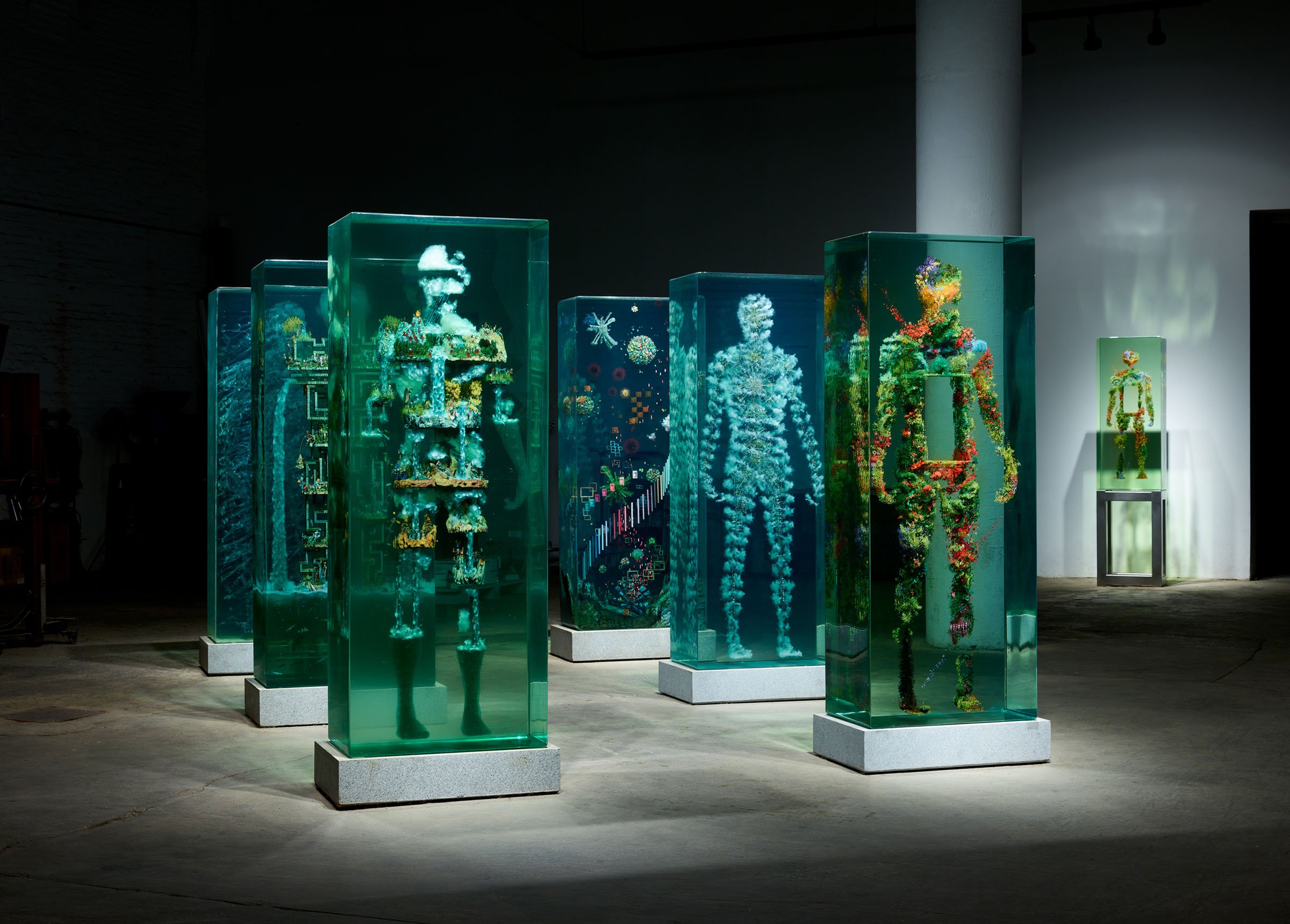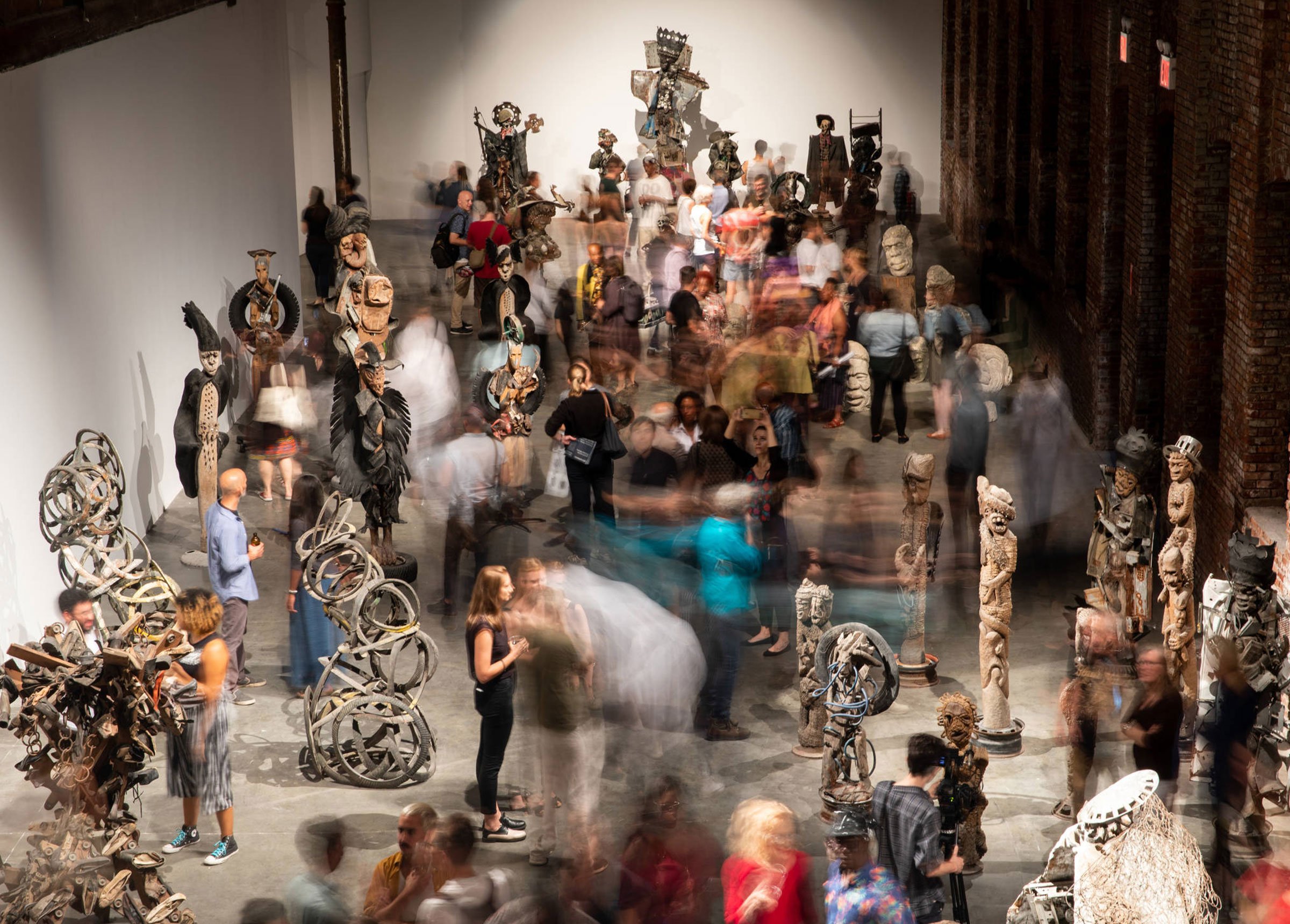Dustin Yellin is an internationally acclaimed contemporary artist based in Brooklyn, New York. His works are exhibited around the world—from the Corning Museum of Glass to Museo del Palacio de Bellas Artes to the SCAD Museum of Art. Yellin is known for his signature, oversized “three-dimensional paintings,” consisting of collections of paper suspended in glass. What sets him apart is not only his artistic talent, but his work as a cross-disciplinary visionary—one who stands strongly for the combined power of art and science. Yellin has been profiled by the New York Times, Vanity Fair, and was invited to speak at two TED conferences, giving talks entitled “A journey through the mind of an artist” and “Why I think inside the box.”
The artist-activist is also recognized for reinvesting in his community. Yellin founded Pioneer Works in 2012, a nonprofit community center and research hub, moved by the mission to bring together experts from all fields and walks of life. The foundation is dedicated to finding innovative solutions to big problems—and sharing them with the rest of the world. Pioneer Works functions as a common ground for the intellectually curious, regularly hosting science lectures, book launches, and concerts for the community, and is housed in the renovated five-story building next door to Yellin’s Brooklyn-based art studio. Hundreds of artists apply each year to complete an on-site residency with the center.

A closeup of one of Dustin Yellin's three-dimensional paintings
In 1983, eight-year-old Yellin took a wooden box and placed inside of it three objects: a dollar bill, a fork, and a pen. He buried it in the backyard of his childhood home in Colorado. Fascinated by the idea of leaving behind a Rosetta Stone for an advanced human (or alien) race to find 500 years in the future, he imagined these objects giving them a glimpse into how we once lived.
Now in his 40s—and a widely acclaimed artist—Yellin is still making boxes. Only now they’re in the form of his three-dimensional paintings, crafted of thousands of bits of paper and encased in blocks of glass. His work continues to explore the concept of time capsules, creating contained worlds to hold the archives of our culture, as told through the paper media it creates: magazines, encyclopedias, trading cards, photographs, and more.

A collection of Dustin Yellin's Psychogeographies, illuminated by Ketra in his Brooklyn studio
Inspired by the famous Terracotta Army in Xi’an, China, Yellin took this modus operandi and turned it figural, captivated by the not-quite-perfect symmetry of the human form to create his Psychogeographies. These glass boxes depict figures trapped in larger-than-life microscope slides, magnifying them down to their component parts.
His response to the age-old question: “Are we more than the sum of our parts?” seems to be a cheeky yes and no. While we are shaped by the physical bits-and-pieces that create and compose us, we remain part of the larger human culture and consciousness—something far greater and more powerful than the sum of these pieces.
At once utterly unique and indefinitely tied to its collection, the works seem to reflect Yellin’s own vision of humanity. He considers the 100+ pieces comprising the Psychogeographies series as part of an intertwined, connected family, best viewed in groups of 12 or 24. Seen together, these pieces pose the question: What are each of the thousands of things that make up who we are?

The Pioneer Works Headquarters, Source: Dustin Yellin Portfolio
As for Yellin, his most ambitious box yet may be the Pioneer Works headquarters, a 27,000-square-foot artist’s complex to house the Brooklyn nonprofit. Gathered within the space are a diverse and talented collection of people from fields across the arts and sciences: musicians, geneticists, visual artists, physicists, writers, photographers, and more, working side-by-side to think differently about the world as it is now—and actively building a world they want to live in.
A cultural center and community gathering place, Yellin founded Pioneer Works as a space to honor the process of discovery and the act of creation. Hosting free events, an onsite radio station, and an onsite print shop are just a handful of the foundation’s efforts to share their work with the rest of the world, breaking down barriers to spaces that hold the highest levels of thinking about the questions confronting our society today, and fostering a sense of community and hope in the process.
Delve deeper into the artist's mind with our exclusive interview with Dustin Yellin here and learn more about how Ketra illuminates Dustin's Brooklyn Studio here.
Photography courtesy of Dustin Yellin
24/7 Technical Support:
1-844-LUTRON1 (588-7661)
lightingsupport@lutron.com
Customer Service:
Monday-Friday 8am- 5pm EST
1-844-LUTRON1 (588-7661)
The Ketra logo, Ketra, TruBeam, Color Lock, and Calibration360 are trademarks or registered trademarks of Lutron Electronics Co., Inc. in the US and/or other countries.
©2025 Lutron Electronics Co., Inc. All rights reserved.
Get inspired with all the best from Lutron and Ketra: exclusive news, project features, and more.